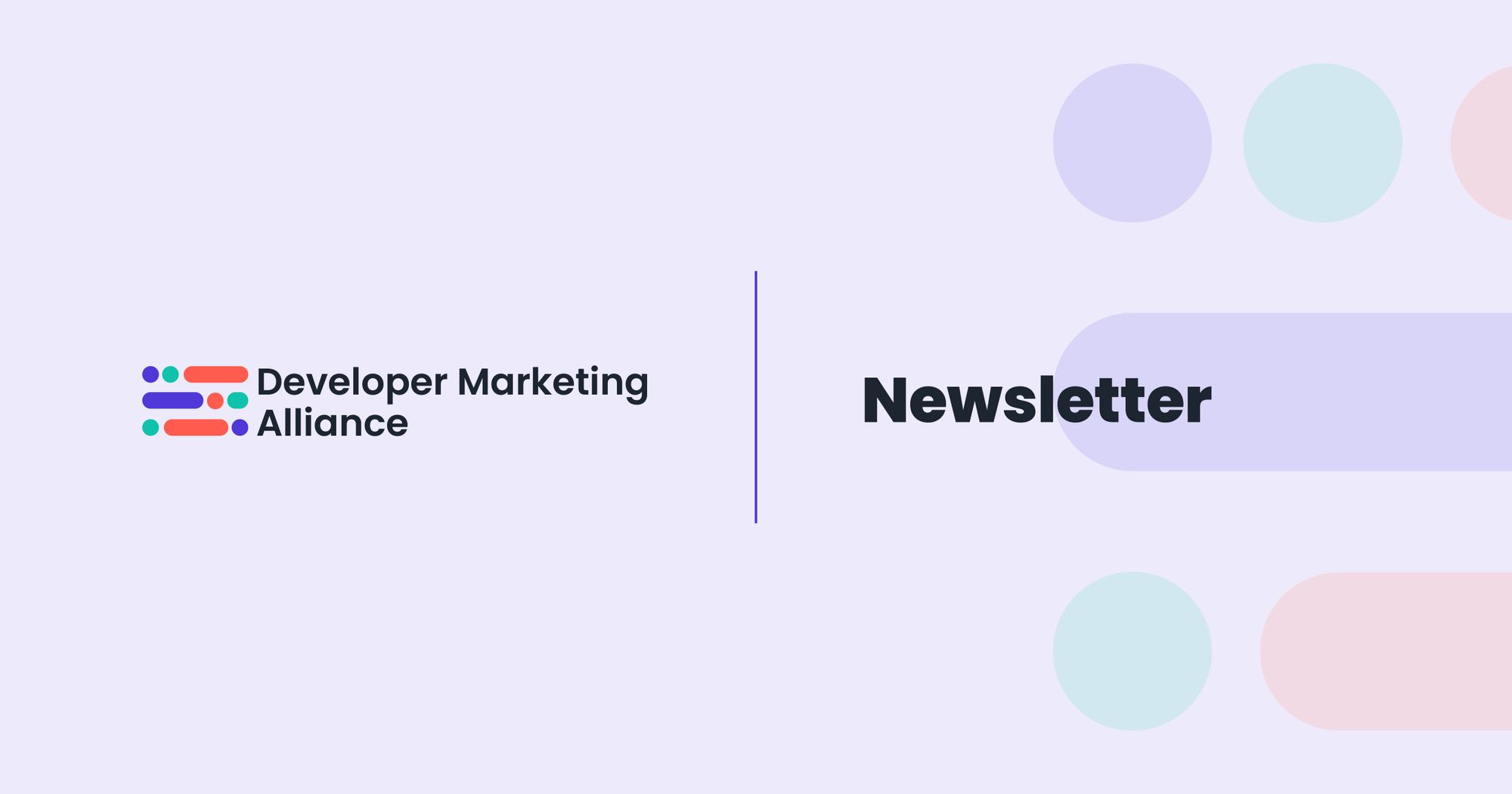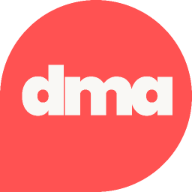Brand awareness – meaning how familiar people are with your brand or company – is a key step when marketing to developers. After all, if they don’t recognize you, they won’t click on your ads or choose your product.
But with so many businesses and products out there, standing out from the crowd is hard work!
Creating bulletproof brand awareness can take some time, so lay the groundwork now – and ensure you have an audience (and fans) when you need it.

Here are some tips to boost your brand awareness, which we’re going to discuss in detail in this article:
- Creating an effective brand positioning
- Ensure your messaging is strong
- Having a compelling value prop
- Engaging the developer audience
- Using hackathons
Create an effective brand positioning
Your brand and product positioning (and the message you put out there), shows how much you differ from your competitors and what developers can expect when they choose you. Nailing it is crucial.
You want your brand to be seen as valuable and credible, and you also want people to look at it in a good light. Ideally, you also want your brand to take up place in the mind of developers (in a positive way)!
Have a strong brand positioning
What are the benefits of having effective brand positioning?
Your brand will be at the top of people’s minds, for a start – this is huge because developers will think of you once they’re finally ready to purchase.
Another thing to consider is that you’ll be able to showcase how different you are from your competitors, which allows you to stand out. Otherwise, every business would say and offer the same things, and it would be tough for people to make a decision. So, think about your unique value proposition!
With a strong brand positioning, you’re able to better understand developer pain points and how to address them, as well as creating a stronger connection with your target market.
Another reason to work hard on your brand positioning is that it can help you build a fan base. Every business wants return customers, and showing people how you differ from other companies is a good way to have advocates happy to promote your brand.

People are also more willing to accept a big price tag if they can easily see what benefits they get when they choose you.
Positioning is important to make better (and faster) decisions within your business as well since you have a clearer idea of your goals and vision.
Given that you should position your brand/company/product favorably in developers’ minds, let’s now look at how you can accomplish this.
What makes a strong brand positioning?
There are several elements that make up a good brand positioning strategy, and all of them are important if you want to target a diverse, technical audience.
- Knowing where you’re positioned at the moment.
- Understanding your developer personas – what are its goals, challenges and needs?
- Identifying your competition, including knowing how they’re positioned and what makes them different.
- Fully figuring out what makes you different too. Maybe it’s your price point or, perhaps, a product that fills in a gap in the market – whatever it is, it’s vital you understand what people value in your product.
Make sure you have successful messaging
Now that you’ve sorted out your brand positioning, it’s time to communicate it to your audience.
This is where messaging comes in. It’s how you get developers to think about your products and services, and how you can inspire people to purchase what you have to offer – this includes choosing the right tone of voice and words used, for example.

You have a limited amount of time to explain to developers why they should choose your product or service above a competitor’s, so the ad they see on a website or the social post you’ve published has to do the heavy lifting.
A good example of brand messaging is a company’s slogan. You can probably already think of a few, such as Nike’s famous “just do it” tagline. There are a thousand and one ways to create a message for your brand and/or product, so it’s up to you how you want to approach it.
Answering these questions can help:
- What makes you different from everyone else?
- What’s your UVP (unique value proposition)?
- What do you think will resonate with developers?
- Are you telling a story?
- Why should your audience care?
- What are your goals and challenges?
Why craft a brand message at all?
The importance of your messaging shouldn’t be underestimated – while you may think that all you need is personas, a good message brings a whole host of benefits you don’t want to miss out on.
It can boost productivity inside your company (as it can help you write better sales pages, for example), help you promote your brand in a consistent way across different platforms, and boost revenue (due to the emotions you can convey with solid messaging).
How to write your message
Looking for ideas on how to actually create your messaging? Make sure you take the following into consideration:
- Know your objectives inside out – what do you want devs to do when they find your message? Trial a service? Buy your product? Evangelize it?
- Have the right tone of voice, which should be in-keeping with your brand.
- Identify your target market. There are many different types of developers, since they're a varied audience, so who are you really aiming for? Full-stack devs, game developers, software engineers?
- Think about a slogan and how you can also distill your brand into just one line.
- Stay on top of the latest trends.
- Look at what your competitors are doing.
- Make sure you’re telling a story and not just reciting facts, for example.
- Include the benefits people get if they pick your company or product.
Good brand positioning and messaging are key for brand awareness, so figure them out early on! They can guide your marketing efforts, including helping you understand the tactics that work best for developers.
Defining your compelling value proposition
A unique value proposition is also essential for your positioning and messaging. But, before delving into it, it’s important that you know what a UVP even is in the first place!
Your value proposition should tell developers why they should choose you. It’s a statement that conveys what makes your product and brand unique – simply put, it’s the answer to “what problem are you solving and what can people expect from you?”

To create your UVP, you must have a persona in mind – who are you targeting? This must include your audience’s pain points and expectations. Also, speak your audience’s language; this means living, breathing, and thinking like a developer.
Our blog page is full of expert advice to help you understand your developer audience better, so explore the many articles we offer!
Another thing to take into account is whether your value proposition gets your product/brand value across to your audience. Does it fit your buyer persona? Is it specific enough to convey how your offerings can meet their needs and address their issues?
To summarize, your value proposition needs to be easy to understand, relevant, and, of course, unique!
Engaging the developer audience
A good way to boost your brand awareness is to grab developers’ attention – after all, devs are a huge part of the product buying process. Whether you’re launching a SaaS product or any other tech tool, you can bet developers are there to either sing its praises or turn it down…
There isn’t one absolute way to engage developer audiences (and they aren’t often receptive to more traditional marketing efforts), so coming up with a strategy can be tough.
However, we know that devs love practical stuff, peer-to-peer conversations, the opportunity to develop their skills, and authentic interactions. What does this tell us? Instead of applying marketing tactics to developers, it’s best to build trust and long-term relationships with them.
To achieve this, education should take center stage.
Why is education so important for B2D?
Developers don’t like being marketed to (or, more accurately, don't like pushy sales tactics).
So, focus more on offering your know-how by ensuring they have all the information they need to make a decision about your product. Consider their time, abilities, and expertise when engaging with them. Also, offer a hands-on experience, such as allowing them to trial your product, as this helps to drive engagement.
To create an effective developer marketing plan and draw devs’ eyes to your brand, you can also tell a story. The storytelling technique is effective with most people, including developers, because it shows them how your product works, the benefits they’ll get, etc.
Don’t be sales-y; offer devs something they can sink their teeth into and make their lives easier instead.
Make use of hackathons
Hackathons are a fantastic way to raise brand awareness for your business or product because it brings everyone together – programmers, software developers, engineers, and so on.

These events (where devs can create a new program, solve a problem, or face a challenge) are creative and allow people to learn new things and expand their skillset.
So, it’s fair to say that hackathons are more engaging than other advertising techniques! Whether you organize or attend one, it can help developers to learn about your brand and boost exposure to your products.
There are many more ways to increase brand awareness, but all these are a good springboard to get you started!
In short, make sure your brand positioning and messaging are effective, that you have a great value proposition, that you’re engaging your dev audience, and that you’re making the most of events like hackathons.
Sign up for our newsletter to get the latest developer marketing tips in your inbox!






